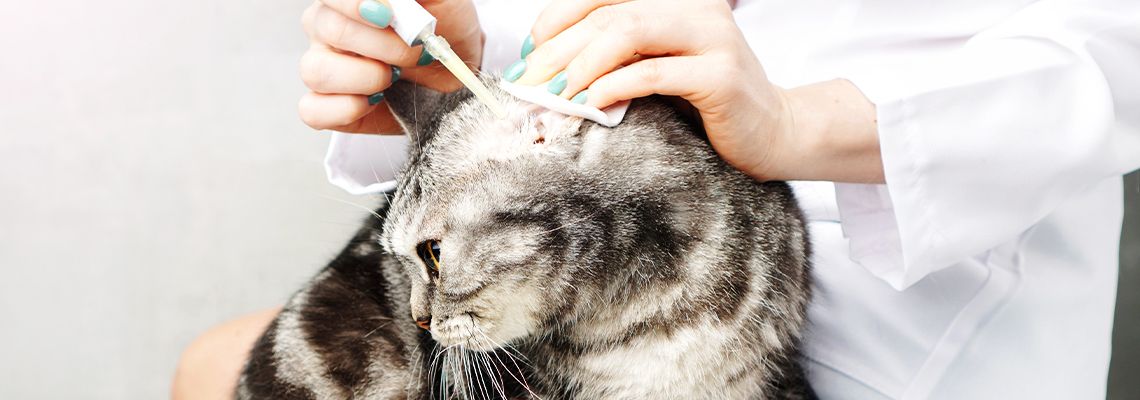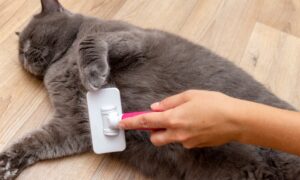Outline
I. Introduction
- Explanation of why it’s important to keep your cat’s ears clean
- Briefly discuss the anatomy of a cat’s ear
II. Signs of dirty ears
- Itching and scratching
- Foul smell
- Discharge or debris
III. How to clean cat ears
- Preparing for the cleaning
- Steps to clean the ears
- Dos and Don’ts of cleaning cat ears
IV. Preventing ear problems in cats
- Regular grooming
- Regular vet check-ups
- Diet and hydration
V. Natural remedies for cat ear cleaning
- Olive oil
- Witch hazel
- Apple cider vinegar
VI. When to see a vet
- Signs of an ear infection
- Importance of prompt treatment
- How a vet can help
VII. Conclusion
VIII. FAQs
Clean Cat Ears Tips: Keep Your Feline’s Ears Clean and Healthy
As a cat owner, it’s important to keep your feline friend’s ears clean and healthy. Dirty ears can lead to infections and discomfort for your cat, which can be both painful and costly to treat. Here are some tips for keeping your cat’s ears clean and healthy.
Signs of dirty ears
The first step in keeping your cat’s ears clean is knowing when they’re dirty. Some signs to look out for include itching and scratching, a foul smell, or discharge or debris in the ear canal. If you notice any of these signs, it’s time to clean your cat’s ears.

Clean Cat Ears Tips: Keep Your Feline’s Ears Clean and Healthy
How to clean cat ears (Clean Cat Ears Tips)
Cleaning your cat’s ears isn’t difficult, but it does require some preparation and care. First, make sure you have the right supplies on hand, including a cotton ball or pad, a small amount of warm water, and a cat ear cleaning solution. Then, follow these steps:
- Gently hold your cat’s head still and lift the ear flap.
- Squeeze a small amount of cleaning solution into the ear canal.
- Gently massage the base of the ear to distribute the solution.
- Use a cotton ball or pad to wipe away any excess solution and debris.
- Repeat on the other ear.
When cleaning your cat’s ears, it’s important to be gentle and avoid pushing anything deep into the ear canal, which can cause damage or injury. Additionally, never use Q-tips or other objects to clean your cat’s ears, as they can also cause damage.
Preventing ear problems in cats
Regular grooming and check-ups with a vet are the best ways to prevent ear problems in cats. Grooming can help remove dirt and debris from your cat’s ears, while regular vet check-ups can catch any potential problems early. Additionally, making sure your cat has a balanced diet and stays hydrated can also help prevent ear problems.
Natural remedies for cat ear cleaning
If you prefer natural remedies, there are several options for cleaning your cat’s ears. Olive oil, witch hazel, and apple cider vinegar are all safe and effective choices. Simply apply a small amount to a cotton ball or pad and gently wipe the inside of your cat’s ears.
When to see a vet
If you notice any signs of an ear infection, such as redness, swelling, or discharge, it’s important to see a vet as soon as possible. Prompt treatment can help prevent the infection from spreading and causing more serious problems. Additionally, a vet can help identify any underlying conditions that may be causing ear problems in your cat.
Conclusion
Keeping your cat’s ears clean and healthy is an important part of being a responsible cat owner. By knowing the signs of dirty ears, taking steps to prevent problems, and using safe and effective cleaning methods, you can help keep your feline friend happy and healthy.
FAQs
- Can I use hydrogen peroxide to clean my cat’s ears?
No, hydrogen peroxide can be harmful to your cat’s ears and should never be used to clean them. Stick to cat-specific ear cleaning solutions or natural remedies like olive oil, witch hazel, or apple cider vinegar.
- How often should I clean my cat’s ears?
It’s a good idea to check your cat’s ears regularly and clean them as needed. Some cats may need more frequent cleanings than others, depending on factors like breed, age, and activity level.
- What should I do if my cat won’t let me clean their ears?
If your cat is resistant to ear cleanings, try to make the process as comfortable and stress-free as possible. Use treats or toys to distract them, and go slowly to avoid overwhelming them. If your cat still won’t cooperate, ask your vet for advice.
- Are ear infections in cats contagious?
Ear infections in cats are usually caused by bacteria or yeast that are present in the environment. While they’re not contagious from cat to cat, they can be more common in households with multiple cats or in cats with compromised immune systems.
- Can ear infections in cats cause hearing loss?
In severe cases, ear infections in cats can cause hearing loss. It’s important to catch and treat infections early to prevent serious complications.
Read More:Cat Grooming Tips: Best Practices for a Healthy Feline Coat




















